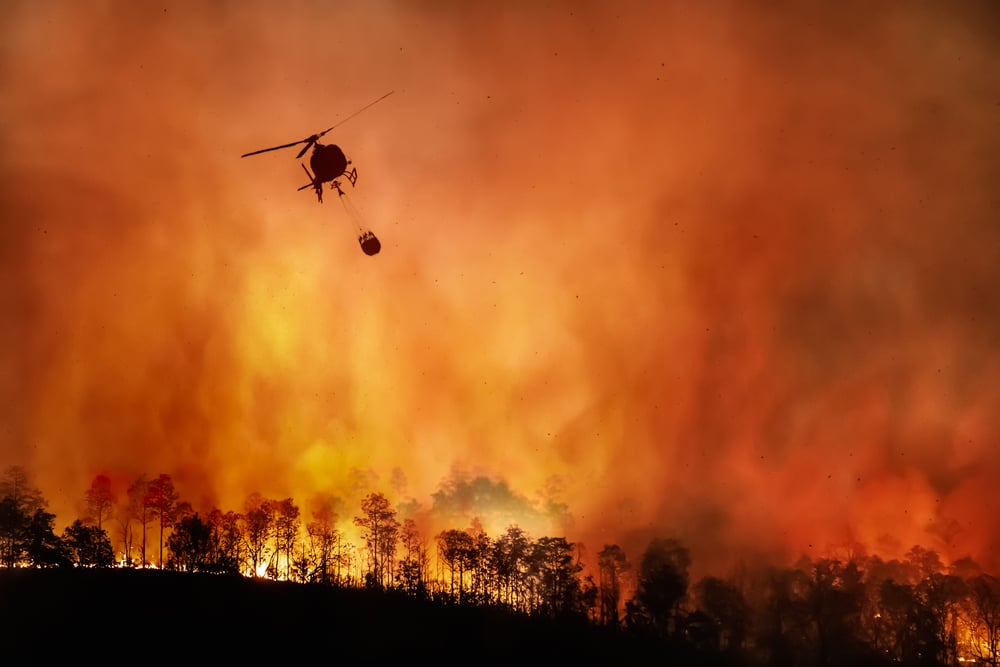When we all manifested for yet another hot girl summer this year, we didn’t actually mean this.
You might be wondering if the heat has always felt this unbearable because of our location near the equator, but recent developments have shed light on how this global phenomenon has been felt by virtually everyone as of late.
Here’s everything you need to know about the global heatwave phenomenon.
What Exactly is a Heatwave?
The World Meteorological Organization, an entity under the United Nations, defines a heat wave to be a period of unusually hot weather over a particularly region persisting for at least two consecutive days during a hot season in the year.
It is prevalent in high-pressure weather systems where warm air gets pushed downwards, and the subsequent compression causes the air to feel even warmer.
In Europe, the high pressure system known as the Azores High has expanded rapidly up North, affecting more territory in France, United Kingdom, and more, instead of its usual region of just coastal Spain.
In Asian countries like Japan and China, a system known as the West-Pacific Subtropical High, located over the Tibetan Plateau and North Pacific Ocean is what’s causing the severe heatwaves.
Climate scientists are fairly certain that climate change through human activity, such as the excessive burning of fossil fuels, is largely to blame. The reason is simple: these heat trapping gases in our atmosphere cause average temperatures to rise throughout the globe, making many regions more prone to more experiencing extreme weather.

A Blistering Heat Consumes Much of Western Europe as it Experiences it’s Hottest Summer Yet
On Tuesday, 19 June, Britain experienced record-breaking temperatures of over 40°C for the first time. Other neighbouring countries have not been spared as well. Temperatures in countries like Spain, France, and Italy have also been exceeding 40°C.
That’s unsettlingly hot, even for our Singapore standards.
In regions such has France, where particularly dry climates are at increased risks of wildfires, worn-out firefighters have been battling the blazes for days on end.
This has catastrophically played out in the Bordeaux region of France, where over 12,000 people were forced to evacuate from their homes as wildfires swept through, wiping out 25,000 acres of land along with it.

“The French forests burned in fires this year is already triple those destroyed in 2020,” French President Emmanuel Macron said.
London’s Luton airport also called for a necessary half-day shutdown because the intense heat had warped and damaged the runways.
Working and schooling schedules of citizens were also disrupted as major train stations had to close due to safety concerns over the potential buckling of the trains on rails.
This is very bad news for everyone, but not if you’re in the fan business.
Sales of fans at one British retailer, Asda were reported to have increased by a whopping 1,300% during this scorching season, a testament to just how unbearable the heat has gotten.
In Asia, The Situation is Not Any Better
In China, officials had released red alerts, the highest possible one in their heat wave warning system.
The country has been dealing with its severe erratic weather conditions since the start of May when its rainy season hit and heavy downpours brought in devastating floods and landslides, affecting millions of residents, killing crops, and taking a few lives with it.
By June, a heat wave began making its way through provinces in Northern China, putting over 64% of the population under a blistering 40-45°C of heat.
The Japanese government has also urged over 37 million citizens in the Tokyo and surrounding region to switch off their lights and conserve energy as a looming power outage threatens the country due to the sweltering heat.
Should We Expect a Similar Situation on Our Sunny Island?
With all that, you might be wondering just how bad it’s going to get for us here on our notoriously hot and humid island.
It might even be hot enough for some to start hosting birthday parties under flyovers instead of at parks to potentially dodge the sun.
Regardless, back in April and May this year, we broke two historical records for the highest daily maximum temperature ever recorded in Singapore for these months.
However, according to TODAYonline who spoke with Associate Professor Koh from SUSS, he stated that Southeast Asia will not be affected directly as the tropical ocean-atmosphere interactions are what affects our weather instead, and not the same pressure systems as those in the west.
This means that we will not experience sudden spikes in temperature for now, though we should not be too quick to rest easy as heatwaves will continue to grow in prominence as climate change continues.
Action Has to be Taken Globally
The National Climate Center has reported that the average global temperature last month was 0.4°C higher than normal years, and the highest since 1979.
I guess this is another definite way of mother nature telling us she’s not happy with the way we’ve been treating her. It’s high time we take some responsibility for climate change, folks.
If we don’t, it’s going to be all hell on earth soon.
Read Also:
- Everything About the New Marburg Virus Outbreak & What the Disease is All About
- 4YO With No Other Medical Condition Dies Due to COVID-19 in S’pore
- Couple Who Scammed $32 Million Had Their Passports Impounded But Still Allegedly Fled S’pore
Featured Image: travelwild / shutterstock.com
Would you be jailed for being half-naked in public? Well, the answer will shock you. Seriously. Watch this to the end and you'll understand:



